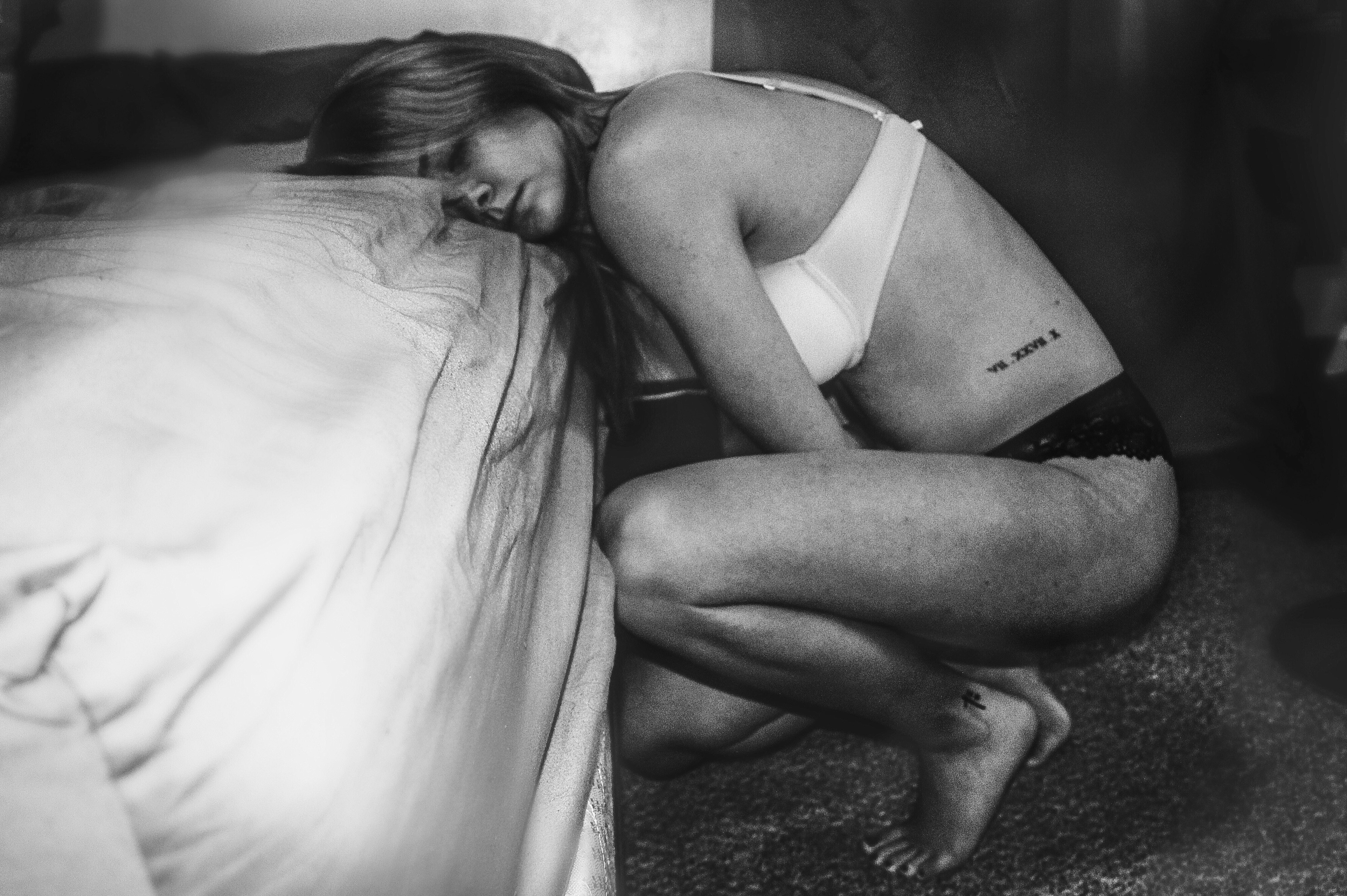As an overweight middle-aged man, I receive plenty of commentary about my weight, particularly from other male friends and acquaintances. Usually in the form of jocular mockery. Which has led me to the question, is this body shaming. And, if so, is body shaming a problem?
In recent times it has become increasingly clear that being overweight is actually a problem. Recent reports state that obesity is poised to overtake smoking as the biggest cause of avoidable death. Although, to be fair, virtually the same story broke in 2004.
Regardless of whether or not obesity ever actually becomes the biggest cause of avoidable death. It definitely is a cause of avoidable death and it isn’t really taken seriously.
Historically, when it’s pointed out to a man that he’s fat, he’ll usually do something like slap his belly and say something along the lines of, “All bought and paid for!” Then everyone chuckles and the conversation moves on.

In today’s society, though, you have to wonder whether this guy actually classes as fat? The BBC published an article entitled, ‘BMI and obesity: Where are you on the UK fat scale?‘ This included a calculator that showed me as being deep into the obese bracket. This was not news to me. What was news to me was that, ‘About 78% of men in your age group are overweight, obese or very obese.’
So, if most of the men around me are the same sort of weight as me, am I actually fat; or has being fat become normalised? On that note, can I even use the word ‘fat’, in this context, without running the risk of offending someone?
I think so. Because I’m fat! I’m made overweight and obese, because of all the extra fat I’m carrying. Therefore I’m fat. There’s no point dancing around the subject. Being thought of as fat isn’t going to kill anyone. Being fat is!
I’m not happy about being fat. In fact, I think it contributed to me developing cancer at 43. My dad was diagnosed at 57. His mum, in her early 50s. Therefore, it seems likely that there’s a hereditary element to my disease. But I got it, say, 12 years earlier than I might have expected to, because of my eating choices.
And make no mistake, I chose to eat the way I did. No one made me do it. And, true, it’s only fairly recently that I’ve become aware of the link between obesity and bowel cancer. But I always knew that obesity carried other health risks, and I still lived on cakes. I have no excuses. And with articles like the one from the BBC popping up all the time, excuses are becoming thin on the ground.
There is even a useful scale with which to measure your weight, the Body Mass Index (BMI). There are BMI calculators everywhere but I like the NHS version.
And I accept that BMI isn’t a perfect measure, it’s not that accurate for me: I’m 6ft 1in tall and my Healthy Weight Range is, 10 st – 13st 8lb. My wife is 5ft 3in tall, and her Healthy Weight Range is 7st 6lb – 10st 2lb. This means that if we both weigh exactly 10 stone, we’re both within the Healthy Weight Range on the BMI scale. I can believe that for Julie. But not for me. 10 stone is too little.

The inaccuracy, in my case, is down to muscle mass. Well hidden though it might be, I actually have a relatively high muscle mass. Although, what I mainly seem to use it for, these days, is to carry all the fat around. Anyway, BMI is estimated to be accurate for around 90% of the population, and is still a useful pointer to the other 10%.
Another test, to use alongside BMI if you’re dubious, is to measure your height and then measure your waist. If your waist is more than half of your height, you’re overweight. For me, for example, my height is 186cm and my waist is 120cam, which is a long way from the 93cm it should be. See: fat!
But not everyone with a BMI higher than the Healthy range is to blame for their situation. There are medical reasons for obesity, but they effect a relatively small number of people when compared with dietary choices.
There are also problems for those with lower disposable time and/or income, because, unhealthy food is much cheaper and quicker than the healthy alternatives. And while Jamie’s 15 minute meals are relatively quick, they’re also relatively pricey. And while fast food is relatively quick, it’s relatively unhealthy. While this obviously needs addressing, it’s more of a societal issue than I want to consider at the moment.

For those without excuses, the vast majority, if you’re not in a healthy weight bracket, why not? Just because those at an unhealthy weight outnumber those who are not, there is no reason not to deal with this. In the past, smokers outnumbered non smokers. Then the knowledge about the damage to health became well known, and the number of smokers dropped…
To about 1 in 6!
Less now, thanks to vaping. But there is still a significant portion of the population willing to buy a product that is covered in pictures of the damage it will do them, and then inflict that damage upon themselves.
And even this drop in smokers took a generation of education to achieve.
Is this really going to be us and obesity? Is it really the case that half of us, above a certain age, are going to eat ourselves to an early grave? And what is that age? Are our children safe? From us? From learning from and following our example? In reality, in far too many cases: probably.
Which brings me to my daughters who, at 14 and 16, seem to be the exact age that the whole world seems to think they’re about to get brainwashed by media images. As it is, they’re both in the healthy range, for BMI, so, presumably, they must not be interested in fashion, or films, or TV…
Which is just as well, because there’s been a recent turn of events that I find worrying and disappointing. In all the time I’ve been around, there has been a constant fear about the negative body image that underweight models and actresses have had on teenage girls. That the models create a dangerous example, which the teenage girls try to emulate, and this can lead to eating disorders like anorexia and bulimia.
Basically, exposing teenage girls to images of underweight models sets a dangerous precedent that can be damaging to their health. This led to certain countries taking steps to ban ‘excessively thin’ models. Which is a good development: girls should not be presented with a body image that is unhealthy to try and achieve.
Which brings me on to Plus Size Models. If underweight models should not be glamorised because it’s unhealthy. How do we find ourselves in the situation where overweight models are being glamorised. Because that’s what being overweight is… unhealthy!
And I understand that a lot of these ‘Plus Sized Models’ are actually in the healthy BMI weight range. Which means that they’re not ‘Plus Sized’ at all, and describing them as such makes girls of a healthy weight feel plus sized themselves. Which, of course, will be interpreted as overweight, despite actually being a healthy weight. Madness!
But those models that are genuinely overweight are, to my mind, doing as much harm as their underweight colleagues. They’re idealising an unhealthy body image and, worse still, in some cases attempting to normalise their weight.
The Body Positive Movement, whether intentionally or not, carries the message that it’s okay to be overweight. In the 60s, this movement asked, ‘Is body shaming a problem?’ and decided that it was. It fought the fat shamers, insisting that it was okay to be overweight. But being overweight will shorten your life…
The Real Women Have Curves Movement, again, was used to fight fat shaming and make perceived body shaming a problem. But this whole concept is flawed. Real women have curves. Do they? What, all of them? If a women doesn’t have curves, does that mean she’s not a real woman? Of course she is!

I don’t want my daughters to be made to feel that being underweight is okay and acceptable, or that being underweight is a healthy choice. I also don’t want my daughters to be made to feel that being overweight is okay and acceptable, or that being overweight is a healthy choice.
Neither of these options is the healthy choice. Neither of these conditions should be glamorised or normalised or promoted to my daughters, or anyone else, as the healthy choice.
Being a healthy weight and/or body shape is the healthy choice. It is the only option that should be normalised. Images of female models and actresses within a healthy body range is all they should be subjected to.
So, is body shaming a problem for teenage girls?
Yes, absolutely. An approach like body shaming will only make life more difficult for teenage girls. But only seeing models and actresses with a healthy body weight will certainly help. Although being brought up in an environment that promotes healthy eating and a healthy lifestyle, will help more.
But, is body shaming a problem for middle aged men?
No, not from their peer group, at least. Only when we start admitting to each other that we’ve got problems, are we likely to listen. And for men, this process is best done, as ever, through mockery.
Is body shaming a problem for everyone else? I imagine it will vary. But smoker shaming became a thing. And smoking numbers declined.
Going forward, does that make body shaming a problem… or a solution?!
But, why wait until body shaming becomes acceptable? And it might, as the impact of obesity starts to take its toll on the NHS. Be you a teenage girl, or a middle aged man, or anyone else; focus on your weight, think about your health, and do something about it now.
